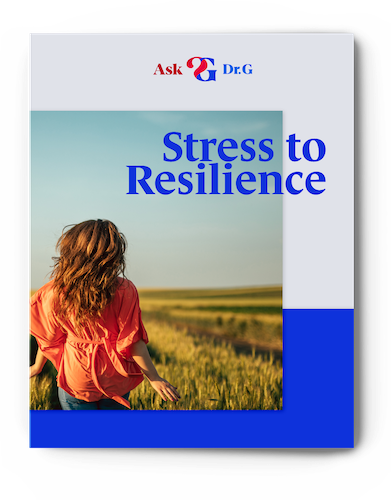Hi!
We have a bunch of new folks in the community this week (hello restauranteurs and hello camp professionals!) and so here’s a recap of the topic we’ve focused on here for March:
How to be resilient in the face of stresses that never resolve.
There are three steps in this answer. We spent a week on step 1:
Name the stressor. You did that!
Last week we started the hardest step:
Catch yourself before the response.
I asked you to start this process by identifying the response you don’t like in yourself. So if you’re catching up, name the stressor that is most frustrating you and just isn’t going to go away. Then name to yourself how you react to it that you wish you didn’t.
Wow, did you all respond like wildfire to this question. Some people want to stop yelling, some want to stop feeling worthless. Others want to stop arguing, and still more just wish it didn’t bother them since it’s not changing. I promised last week that, once you’ve figured out named the response you want to change, it would be far more possible to stop it.
Many people talk these days about being triggered. That means, from a psychologic standpoint, an event that elicits a response. Triggering gives us the (false) belief that, once the trigger is pulled by someone else, we have no control over the response. Adults can learn to change the response – and kids can learn to do that also. How do you catch yourself?
Notice your response as soon as (or before) it begins.
This noticing is a skill.
This noticing takes practice.
Noticing that response you don’t want as it’s getting started – or anticipating it even before it begins – is hard! But stopping a reaction once it’s gathered steam is much harder. So this week I’m asking you to figure out the very first sign that you’re having a reaction you don’t want to choose.
What’s the first sign in your mind or body that you’re going to yell, cry, storm out, throw something, insult someone, feel terrible about yourself, give up, give in? Notice that one. And then try to notice the more subtle sign that preceded that one. And maybe there’s even one before that?
For me, the stressor I can’t change is getting attacked online. The reaction I don’t want is to feel powerless. So far the first thing I’ve noticed is a feeling in my gut that feels the same as when I got in trouble as a kid. I’m not sure if there is a sign before this one, but I’ll pay attention this week and see if I can find an earlier warning sign. No doubt I’ll have the opportunity because online life is just like that.
Comment and tell me what you notice about you. It’s your expertise in yourself that is going to help you create the responses you want – and be the person you want to be no matter what stresses come at you. That’s resilience.
All my best,
Dr. G




